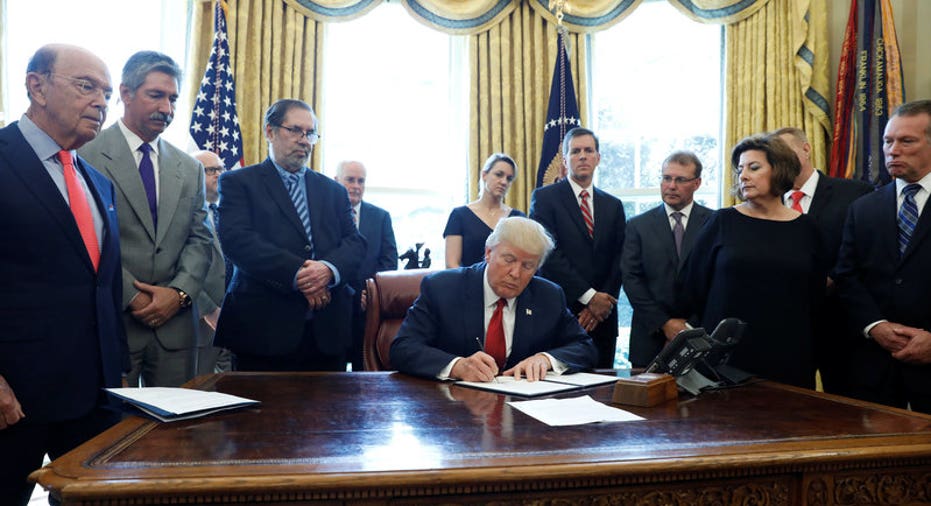South Korea needs to consider a complaint to WTO over U.S. protectionism: steel industry source

SEOUL – South Korea's government and steel industry should consider all measures including filing a complaint with the World Trade Organization (WTO) in response to "deepening U.S. trade protectionism", an industry source told Reuters on Friday.
The source's comments came after U.S. President Donald Trump on Thursday launched a trade probe against China and other exporters of cheap steel into the U.S. market, raising the possibility of new tariffs.
A senior official at South Korea's trade ministry said the government is considering its response to the U.S. move.
"We are open to all possible options including filing a complaint with WTO but nothing has been decided. We will decide after listening to opinions of the Korean steel industry," the official said.
The official and the industry source asked not to be identified because of the sensitivity of the matter.
POSCO <005490.KS> shares were up 2.3 percent and Hyundai Steel <004020.KS> stocks were up 0.8 percent in the wider market that climbed 0.9 percent as of 0341 GMT (11:41 p.m. ET).
Only about 5 percent of South Korea's steel production goes to the United States, according to Choi Moon-sun, a steel analyst at Korea Investment & Securities in Seoul.
Still, South Korean steelmakers, including top-ranked POSCO are bracing for rising tariffs in the United States.
On March 30, the U.S. Department of Commerce made a finding that several countries including South Korea dumped carbon and alloy steel cut-to-length plate in the U.S. market, allowing it to impose duties ranging from 3.62 percent to 148 percent.
In addition, there was a final finding that South Korean imports were subsidized, leading to a countervailing duty of 4.31 percent being slapped on those products.
In September last year, the U.S. International Trade Commission said it would keep in place most of the recent anti-dumping and anti-subsidy duties that have targeted hot-rolled flat steel imports from Australia, Brazil, Britain, Japan, the Netherlands, South Korea and Turkey.
(Reporting by Hyunjoo Jin and Jane Chung; Editing by Tom Hogue)



















